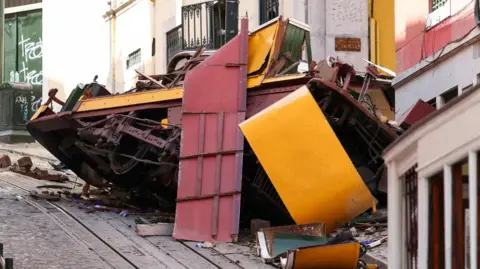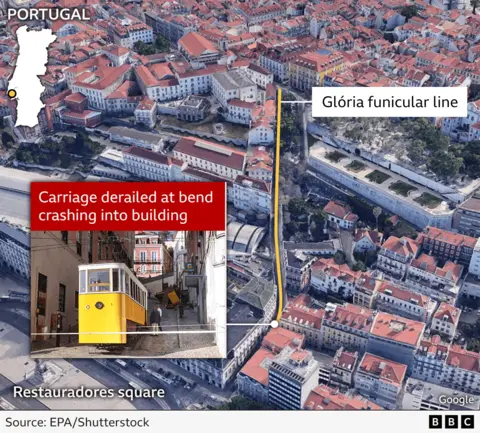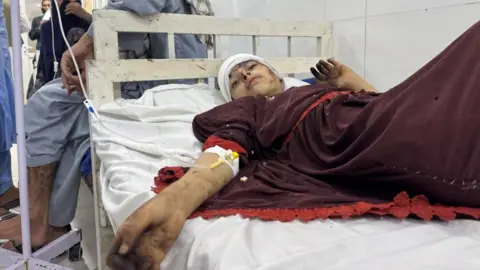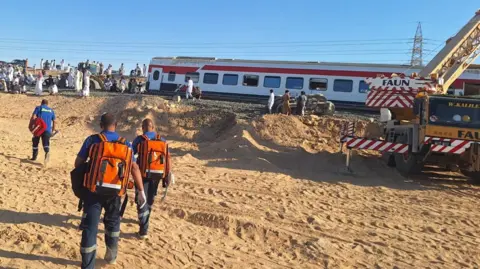Portugal is in mourning after 16 people died and a further 23 were injured when Lisbon's famous Glória funicular cable railway derailed on Wednesday evening.
Portuguese Prime Minister Luís Montenegro announced that the death toll was revised down from 17, as emergency services had previously indicated.
Among the dead were seven men and eight women confirmed by Margarida Castro Martins, head of Lisbon's Civil Protection Agency.
The victims included five Portuguese nationals, three Britons, two South Koreans, two Canadians, an American, a Ukrainian, a Swiss, and a French citizen, according to police reports.
Noted as among the casualties was André Jorge Gonçalves Marques, who worked as the brake guard on the funicular. His employer, Carris, described him as a dedicated, kind and happy professional. He leaves behind a wife and two children.
Another victim, Pedro Manuel Alves Trindade, a former volleyball referee and leader within the Lisbon Volleyball Association, was also confirmed deceased. He worked for the charity Santa Casa da Misericórdia, which lost four employees in the crash.
The tragedy has led to significant public response, with condolences pouring in from various nations, and a German family caught in the incident saw their father confirmed deceased, although contradictory reports later surfaced about one family member's status.
The Glória funicular is a vital transport link for both residents and tourists in the hilly city of Lisbon, and the incident has raised serious safety questions about such forms of transportation.
As investigations continue, the full extent of injuries and the identities of all victims are still being confirmed. There are ongoing discussions about the need for improved safety measures across Portugal's funicular systems.





















